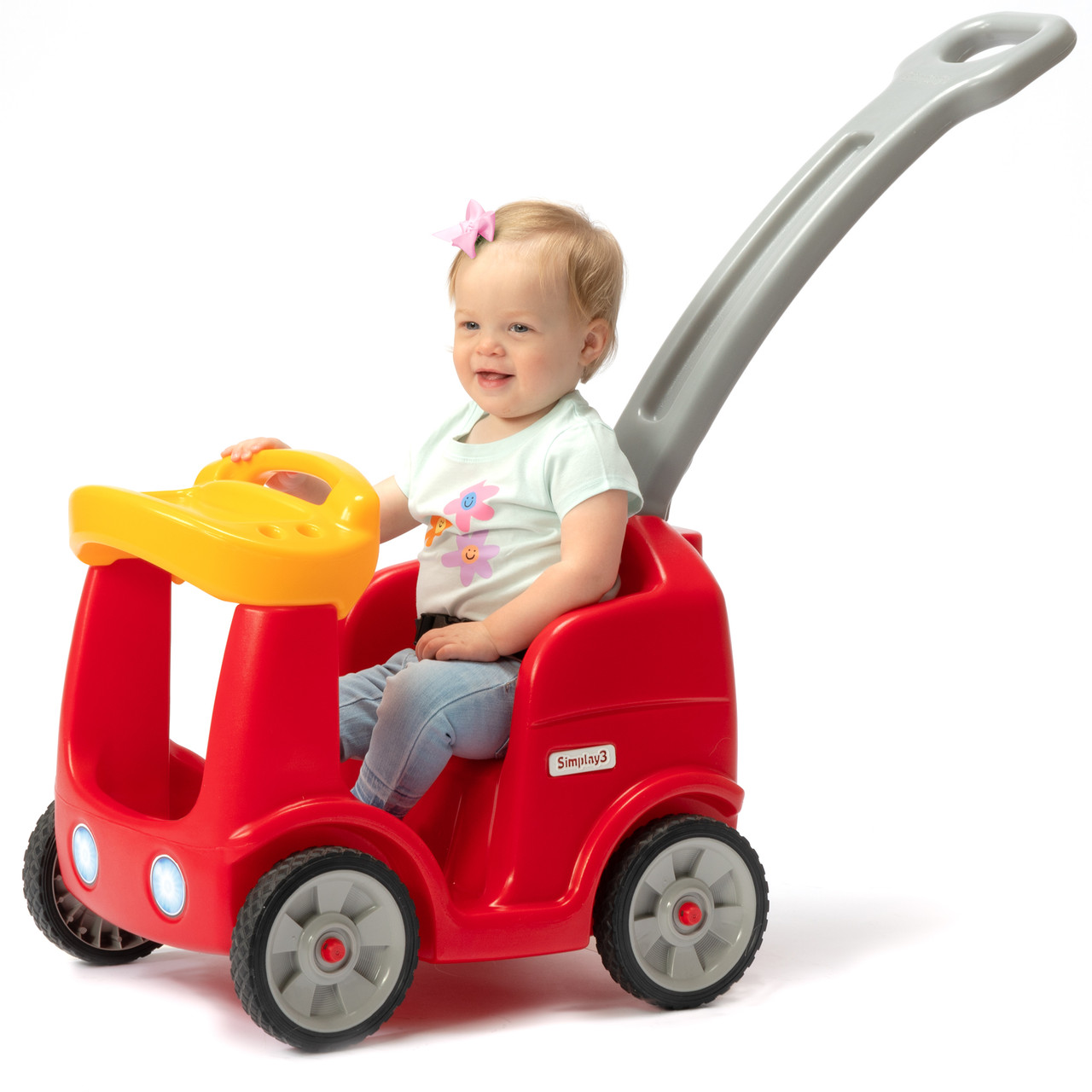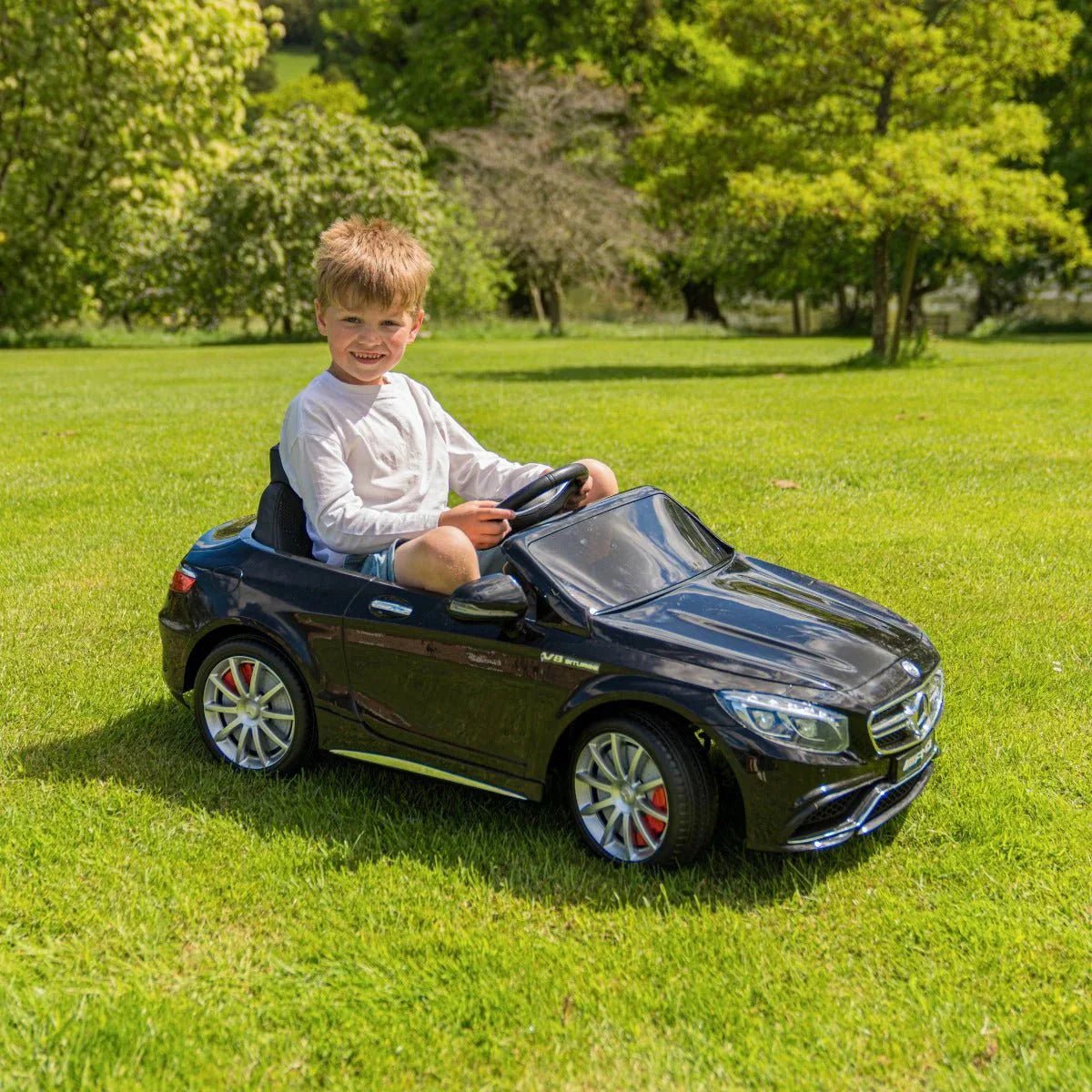Are you wondering if ride on toys are a good choice for your toddler? You want to give your little one fun and safe ways to play, but you also want to make sure they’re learning and growing.
Ride on toys can do more than just entertain—they can help build your child’s balance, coordination, and confidence. But are they the right fit for your toddler’s age and abilities? Keep reading, and you’ll discover the surprising benefits and important safety tips that can make ride on toys a perfect addition to your child’s playtime.

Credit: simplay3.com
Benefits For Toddler Development
Ride on toys offer many benefits for toddler development. They support key skills that young children need. Toddlers learn by moving and exploring. Ride on toys give a fun way to practice new abilities. These toys help build strength and confidence. They also make physical activity enjoyable. Let’s explore how ride on toys help toddlers grow.
Motor Skills Improvement
Using ride on toys helps toddlers improve motor skills. They use their legs to push or pedal. This action strengthens muscles and builds endurance. Hands and fingers also get stronger when steering or holding handles. These movements develop fine and gross motor skills. Better motor skills lead to easier daily activities.
Encouraging Physical Activity
Ride on toys encourage toddlers to move more. Physical activity is important for health and growth. Toddlers spend time outside riding and exploring. This activity increases heart rate and builds stamina. It also helps prevent childhood obesity. Active play supports better sleep and mood for toddlers.
Boosting Confidence And Independence
Riding a toy gives toddlers a sense of control. They learn to steer and stop by themselves. This builds confidence in their abilities. Achieving small goals makes them proud and motivated. Ride on toys help toddlers feel more independent. This feeling is important for emotional growth.
Enhancing Coordination And Balance
Balance and coordination improve with ride on toys. Toddlers learn to stay upright while moving. They practice shifting weight and turning smoothly. These skills are important for walking and running. Better coordination reduces the risk of falls. It also prepares toddlers for future sports and activities.
Types Of Ride On Toys
Ride on toys come in many types. Each type offers a unique experience for toddlers. Choosing the right one depends on your child’s age and skills. Some toys help develop balance, while others build motor skills.
Understanding the different types can help you pick a safe and fun ride on toy. Here are the main types available for toddlers today.
Battery-powered Models
Battery-powered ride on toys move on their own. Toddlers control speed and direction with buttons or a small steering wheel. These models often look like mini cars or trucks. They help kids enjoy riding without needing to push or pedal. Battery-powered toys are good for short rides and indoor play.
Push And Pedal Options
Push and pedal ride on toys need the child to move with their feet or pedals. Push toys let toddlers use their legs to push on the ground. Pedal options require pedaling to move forward. These toys build leg strength and coordination. They are simple, safe, and perfect for outdoor use.
Balance Bikes
Balance bikes have no pedals or training wheels. Toddlers use their feet to push and balance the bike. This type teaches balance and steering skills. Balance bikes prepare kids for real bicycles. They are lightweight and easy to handle for small children.
Scooters For Toddlers
Scooters have a platform to stand on and handlebars to hold. Toddlers push off the ground with one foot to move. Scooters improve balance and coordination. Many models have three wheels for extra stability. Scooters are great for developing motor skills and confidence.
Safety Considerations
Safety is the top priority with ride on toys for toddlers. These toys can offer fun and exercise. But safety rules must be followed to prevent injuries. Understanding key safety points helps parents and caregivers keep children safe.
Age And Weight Recommendations
Check the toy’s label for the right age and weight limits. Toddlers who are too young or too heavy may risk falling or breaking the toy. Choose a ride on toy designed for your child’s size and strength. This lowers the chance of accidents.
Helmet And Protective Gear
Always use a helmet when toddlers ride on these toys. Helmets protect the head during falls. Knee and elbow pads can also prevent scrapes and bruises. Teach children to wear their gear every time they play.
Safe Play Environments
Select a flat, smooth area for riding. Avoid steep hills, stairs, and busy roads. Keep the play area free of sharp objects and obstacles. A safe environment reduces the risk of crashes and injuries.
Supervision Guidelines
Adults should watch toddlers while they ride. Close supervision helps prevent dangerous behavior. Stay nearby and be ready to assist. This ensures quick help if a child falls or gets hurt.
Choosing The Right Ride On Toy
Choosing the right ride on toy for toddlers matters a lot. It affects their safety, fun, and learning. Picking a toy with care makes playtime better. Parents must think about several factors before buying. The right toy fits the child’s age and skills.
Material And Build Quality
Strong materials keep toddlers safe during play. Plastic is common but must be sturdy and thick. Check for smooth edges to avoid cuts. Metal parts should not rust or break easily. Toys should hold up to rough use.
Size And Comfort
The toy must match the toddler’s size. A too big toy makes riding hard and unsafe. Too small toys cause discomfort and less control. Look for padded seats or soft grips for comfort. Comfort encourages longer and happier play sessions.
Ease Of Use
Simple controls help toddlers enjoy the toy. Easy steering and pedals suit beginners. Some toys have push handles for parents to help. Lightweight toys are easier to move and store. The toy should not require complex assembly.
Budget And Longevity
Set a budget before you shop. Costly toys often last longer and are safer. Cheaper toys might break quickly or feel flimsy. Choose a toy that grows with the child. A good ride on toy offers value over time.
Maintaining Ride On Toys
Maintaining ride on toys keeps them safe and fun for toddlers. Proper care helps these toys last longer. It also keeps the toy working smoothly. Simple steps can protect your child’s favorite ride on toy. Consistent upkeep makes playtime worry-free and enjoyable.
Regular Inspections
Check the toy for loose parts before each use. Tighten screws and bolts to avoid accidents. Look for cracks or damage on plastic parts. Inspect wheels for wear and tear. Replace any broken or worn pieces immediately. This prevents injuries and keeps the toy reliable.
Cleaning Tips
Clean the toy regularly with mild soap and water. Avoid harsh chemicals that can damage surfaces. Use a soft cloth or sponge to wipe down the toy. Dry the toy completely to prevent rust or mold. Clean wheels and moving parts carefully. A clean toy looks good and works well.
Battery Care
Remove batteries if the toy won’t be used for a long time. Check battery contacts for corrosion and clean if needed. Use the correct type of batteries as recommended. Replace old batteries promptly to avoid leaks. Charge rechargeable batteries according to instructions. Good battery care extends the toy’s life.
Storage Recommendations
Store the ride on toy in a dry, cool place. Avoid direct sunlight to prevent fading and damage. Keep it away from rain and moisture to stop rust. Use a cover if stored outside for extra protection. Proper storage keeps the toy ready for fun anytime.

Credit: simplay3.com

Credit: www.outdoortoys.com
Frequently Asked Questions
Are Ride On Toys Safe For Toddlers?
Yes, ride on toys are generally safe for toddlers when used under adult supervision. Choose age-appropriate models with safety features like seat belts and speed limits. Always ensure the play area is free from hazards to prevent accidents and injuries.
How Do Ride On Toys Benefit Toddler Development?
Ride on toys help improve toddlers’ motor skills, balance, and coordination. They encourage physical activity and outdoor play. These toys also boost confidence and independence as toddlers learn to control and navigate their ride.
What Age Is Best For Ride On Toys?
Ride on toys are best suited for toddlers aged 1 to 3 years. At this stage, children develop the strength and coordination needed to use them safely and enjoyably. Always check manufacturer age guidelines before purchase.
Can Ride On Toys Improve Toddler Social Skills?
Yes, ride on toys can enhance social skills by encouraging group play. Toddlers learn sharing, cooperation, and communication while playing together. This interaction supports emotional development and builds friendships.
Conclusion
Ride on toys help toddlers develop balance and coordination. They also encourage outdoor play and physical activity. Toddlers enjoy the sense of independence these toys provide. Parents should choose safe and age-appropriate ride on toys. Supervision is important to keep playtime safe and fun.
Overall, ride on toys offer many benefits for young children. They support growth while keeping toddlers happy and active. Consider adding a ride on toy to your child’s playtime. It can bring joy and learning together in one simple toy.





